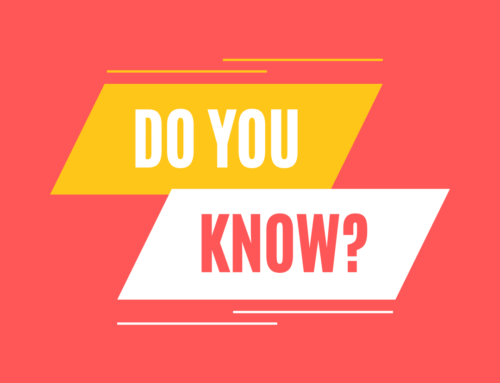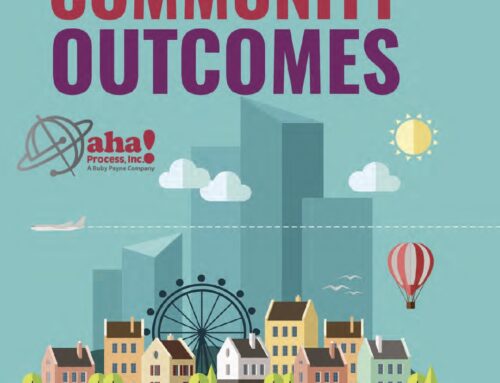The following is a transcript of an interview between Lynn Jackson, Bridges engagement manager for aha! Process, and Mona Ash, program director of Burlington Building Bridges, and Destiny White, a Getting Ahead graduate. The transcript has been lightly edited.
Lynn Jackson: Mona and Destiny, thank you so much for being with me today. It’s good to see you, and I am so excited to hear some updates of what’s happening in Burlington. I see you on Facebook all the time, so I want to thank you for sharing your life through Facebook. But today we get an opportunity to hear a little bit more, and I think we just need to start with you telling me what it was like in Burlington before Getting Ahead was introduced.
Mona Ash: I was working for Young House Family Services and running its Impact program. Before Bridges, I would be serving folks in the community that needed resources—they needed basic needs, and they needed to be hooked up with organizations to help meet their needs. I was able to hook them up with organizations or maybe offer them $50 toward assistance toward rent, but always I would be praying that if there were just people that I could put in their life, if I just had this army of folks that would just come alongside these people, then their lives could be changed. And so before Bridges, I would always ask for that. And then after Bridges was brought here, that was a missing piece, along with the education, of course, the curriculum, which helps put into words what we need to learn to come out of poverty. So that was helpful. And then to have the organizations, the churches, the individuals all working together. Before Bridges, churches were in their little silos. Organizations were doing their work in their offices, but I feel like it created a community that was not here prior. And in so many years, I was working in the social service side, so you could see just it built a lot of community.
Lynn Jackson: Thanks. Destiny, how did you get into this? Tell me your story.
Destiny White: I married my husband when I was really young, and we had a few kids. He became an alcoholic, and I found myself in a bad situation. I had to take my kids and leave, and I was homeless and jobless and experience-less. I’m from southern Louisiana, so my family’s a thousand miles away. I had no one, and one day, a friend I bumped into at the gas station, she was just like, have you ever heard of Bridges? And I was like, no. She was like, here, take this number. Her name is Ms. Mona Ash. I called her, and it was just life-changing from day one.
It’s hard to, it is honestly indescribable the amount that has personally been done for me in my life through Bridges. My husband was able to get clean. I was educated on a lot of things through the class, about the barriers that people who have never been out of poverty face on a daily basis, tyranny of the moment, those hotspot vocabulary words. I never had terms to put on those serious situations that people really do face every single day. Like Mona said, people don’t have support. There’s all these resources and things, and they’re just to themselves. So this person, this church can give you a bundle of food and over here you can get a little bit of utility assistance maybe, but there was no one that could sit down and be like, well, you can’t get food stamps, you don’t have an address, but you can go do this at the post office and use that as an address.
There was no one that was going to sit down and just be like, here’s this collective pool of resources and knowledge just for you to gain. It was just literally just so much at your fingertips. Whenever I started Bridges, I was like I said—I had nothing, and she showed me how to slowly build my resources and social capital. I got a good job. My husband got clean, we got back together, we found a good place to live. We’ve been doing really good, and I mean, I’m one of those people that runs around and I tell anyone who’s having any kind of problem, you should just come to Bridges. You really should just come with me to Bridges because we can change your life. You will find what you need at Bridges.
Lynn Jackson: Thanks for sharing, and thank you for just helping us see that you saw hope, and through that, you continued to build on those resources. Oh my goodness. So I’m going to go back quickly. I follow your fundraising because you do the chairs, correct? Can you tell a little bit about that fundraiser?
Mona Ash: That was birthed in a COVID year when everybody else had to stop meeting, so we had to be creative. We wanted to raise funds, but we also wanted to have a little community. So one of our board members saw a charity option online and let us know. We just started it that year, and we have made funds, but it has been a lot of fun. We have organizations of all types, including businesses and churches that take part in that. Our families enjoy it, and we make it part of our regular meeting during those couple of months that it’s running. It just builds a lot of community, and it is so fun. People wait to hear and see what’s on the chairs. Specifically during COVID, I think it brought us all together where we had something to look forward to.
Lynn Jackson: I think it’s a great idea. That’s why I wanted to give you a chance to talk about it. So what’s in the future? What are you seeing? What’s happening?
Mona Ash: We are so excited. There is a lot going on. I know you’ve seen our Facebook page, but we have a whole night of programming now, which is super exciting. We have joined forces with City Hope Foundation. We kind of got really big for our britches. I mean, it’s been a long process, and it’s been like an avalanche of we grow and then we change, and we evolved into what we need to be for the community we serve. But City Hope and Bridges joined forces and we came under their umbrella, which was perfect because we have the Getting Ahead portion. We’ve created this pathway now. We have a Getting Ahead portion—they go 18 weeks, and then we graduate, and we can go right into Faith & Finances, which is financial literacy for folks on assistance or lower income, and that’s a 12-week course.
We have a six-week course in which we’re partnering with Goodwill Industries, and that covers work experience, and we tack that onto the back of Faith & Finances. So they’re getting this work experience and learning how to keep a job if they have arguments or stress at work. How do you stay focused and keep working toward your goals? Those kinds of things are going to be covered at the last part of it. We also have a Celebrate Recovery 12-step study for addiction services that meets on Tuesday night, and we have our Bridges kids. So we have all of those programs going on in one night where we provide the meal, the transportation, and the childcare with our Bridges kids.
It’s a full program in itself where we’re using curriculum that is evidence-based curriculum, and we geared it toward how we need it. It is a school curriculum that’s made for aggressive behaviors and things in the school system. So we had to kind of change it. It’s a weekly curriculum. We tweaked it for our usage, used some of that, and we also offer STEM activities. The library comes to give our kiddos this really well-rounded experience and learning. We also started peer leadership with our older kids this year because our Bridges kids are coming back and they’re becoming our volunteers. So we want to start young to help them have those leadership skills. It’s like fourth, fifth grade and up, and we’re helping them to become the next leaders of the Bridges kids, which is exciting. I always worked with teens earlier on, and that’s kind of how I got my start. If we could reach these kids that are in trouble to go into the things when they’re little and reach their families, then they would have a better chance for a great future story.
When we started this, I wanted it not just to be childcare. I wanted it to be an actual program where these kids are building their resources and that their parents will know that we are in it from the smallest to the biggest in the family.
Destiny White: I just want to say that when we graduate Getting Ahead, once those 18 weeks are up, every single graduation you just, everyone is so sad, everyone is crying. They’re like, what am I supposed to do with my Tuesday nights? I don’t want to lose my family because we became a family and it’s everyone, all 200 of us. We love each other so much, and it’s so sad. She set a pathway to just keep building the relationships, because a lot of times, you do that 18 weeks and then people will fall off and they don’t really reach out as much as they should. They get into a struggle or back into the tyranny of the moment. It doesn’t matter how good you do, how many resources you have, life still keeps on turning, and so a lot of people will just fall off and not show up to the big meeting on our first Tuesday of the month and things like that. But having that next 12 weeks of Faith & Finances and having the little program with the little thing we have going on with them, Goodwill and stuff, I just think that it really keeps the community bonded. It keeps us together. It keeps people coming back after that 18 weeks. You’re just sad. You’re like, this is over. I’m so sad.
Mona Ash: Absolutely.
Lynn Jackson: Thank you both for taking the time, and go, Burlington, Iowa! We’ll continue to watch and see what’s happening there, and good luck to you as you move forward.
The aha! Process Getting Ahead program engages investigators (participants) in exploring the realities of poverty in their communities and how those realities impact them. They also explore the causes of poverty, the “hidden rules” of economic class, and ways to develop resources and build stable lives. Getting Ahead graduates build relationships across class lines and often join the decision-making tables in their communities.








